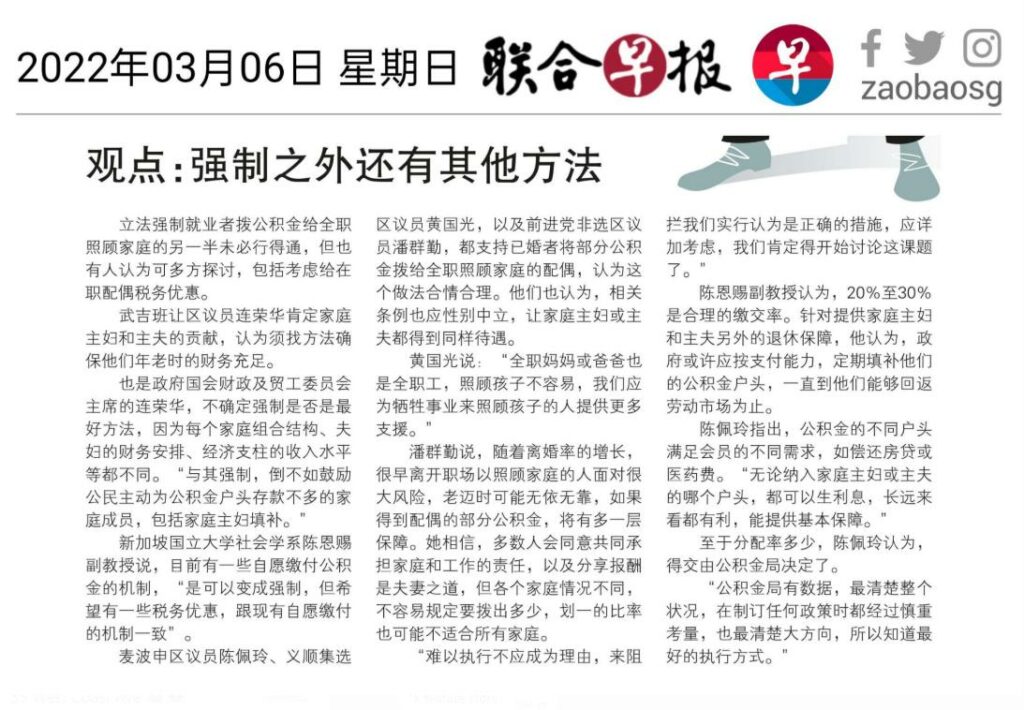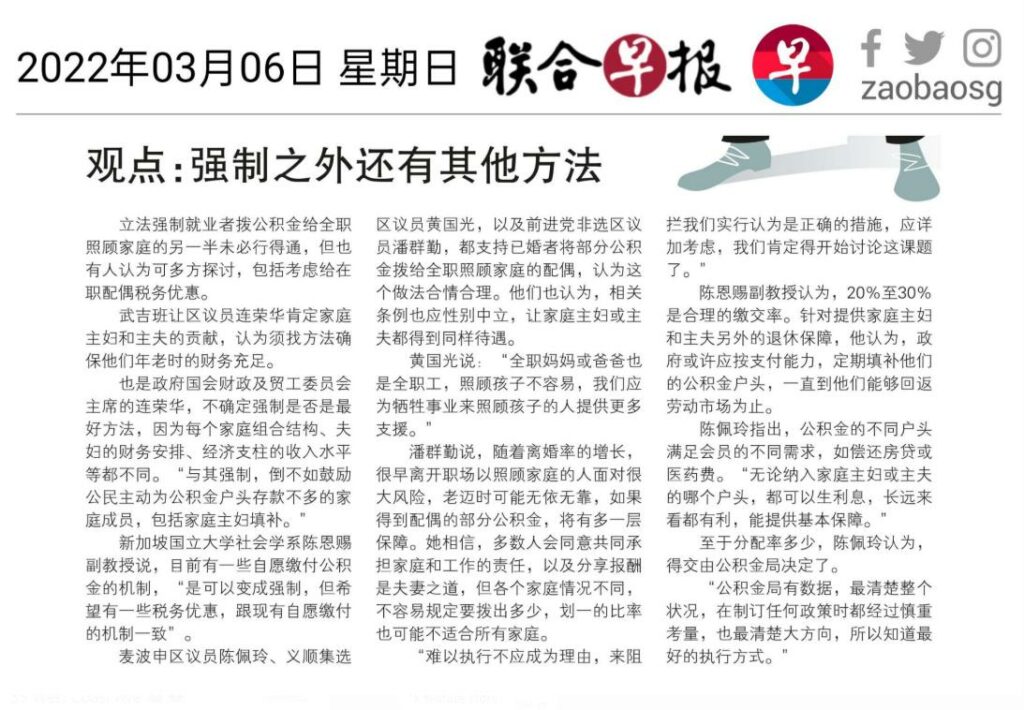I was interviewed by Lianhe Zaobao 联合早报 recently over a feature story for International Women’s Day. I was asked for my views on the proposal for stay-at-home spouse to be given part of the working spouse’s CPF.
With rising divorce rates over time, there is now a greater risk of spouses who made the decision to leave the workforce to take care of family being left unsupported when they are old. They need better protection.
Having a part of the married employees’ CPF contribution go into their stay-at-home spouses’ CPF accounts would give them that added protection.I believe that most would agree with the principle of a married couple who share the responsibilities of family and work also share the rewards.
The difficulty with mandating this is in determining the appropriate proportion of the employee’s CPF to go to the spouse. Different families have different circumstances and a one-size-fit-all solution might not be appropriate for all families.
Contributions within the family is also different from a formal work environment which has a more well-established set of parameters like working hours, performance appraisal, disciplinary proceedings, etc, to which the working spouse is subject to.
However, difficulties in implementation should not stop us from doing what we feel is right. It simply means that more thought, time and effort need to be put in and we should definitely start the conversation on this topic. Caregiving is a heavy responsibility.
I recently had the experience of accompanying my 96 year old grandma to hospital after she told me she was losing her sight in one eye. She could not understand why there was such a long waiting time, and was bewildered and anxious, perhaps even a little fearful, over the checks and treatments that she had to go through.
This was especially so when eye drops were applied to dilate her pupils, causing blurred vision even in her good eye. It led her to believe that she was losing her sight in that eye as well and she could not comprehend our explanations.
It was heart wrenching to witness her panic. Catering to her emotional needs by constantly reassuring her and answering patiently the same questions that were repeated every 15 minutes, while at the same time keeping a firm grip on my own emotions and struggling with my far from adequate Hokkien was very draining. I found it more difficult than working.
My tribute and appreciation to all the caregivers out there. Thank you for doing what you do.
PS: Later this afternoon I will be bringing her for a follow up visit. Wish us luck!


